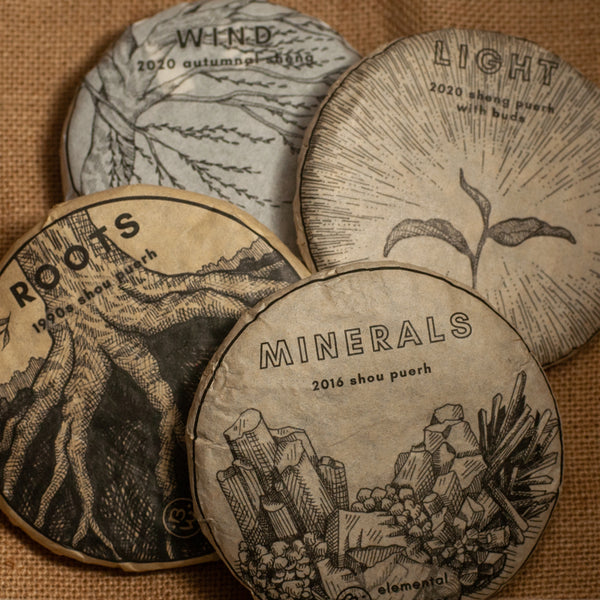PART TWO | OCT 2020
The first thing that usually pops into people’s heads when they hear the word sustainability is the preservation of the ecosystem. While it is not the only lens with which to view the issue, it is at the heart of the conversation.
Certain historic tea areas have been protected by the government. In areas like Jingmai, Yunnan, great lengths are taken to prevent unnatural farming practices. Because it is thought to be the oldest tea producing area possibly in the world, tea production there is regulated and protected to preserve it. No agrichemicals are allowed in the mountains, and patches of tea gardens are kept small. The need for farming is balanced by the needs of the natural ecosystems, so both are carefully guarded.

Tea needs rich, healthy soil to thrive, and without a complex ecosystem to support it, people turn to artificial fertilizers. Tea is also a target for certain pests and needs a vibrant and biodiverse environment to prevent the need for insecticides. Around the world, farmers have combined traditional knowledge of the local ecologies with a global network of resources to improve the growing conditions and protect their tea plants naturally.
The farmers we work with are mostly small scale, caring for compact patches of tea fields scattered within the surrounding forests. Larger operations implement the use of buffer zones; stretches of the natural ecology that run through the tea fields and create a path for animals and insects to safely cross the planted areas. These buffer zones are full of native, beneficial plants which not only help enhance the soil but offer food and shelter to “pests” that would otherwise devastate the tea plants. Many tea farmers use beneficial cover crops as well, enhancing the soil and biodiversity.
In addition to planting and maintaining a rich and healthy mix of plant life, several tea farmers we work with enlist the help of animals to maintain the tea gardens. Goats keep the weeds low and enable easier picking, and animal manure is added to compost piles to enhance nitrogen in the soil. Ducks play a dual role of controlling weeds around baby tea plants where goats might eat the whole plant. Plus, they offer the added benefit of using their webbed feet to tamp down the soil, keeping the new growth stable.

Depending on the growing region, oils of native plants are used to help deter unwanted insects and simple fans are set up to increase air circulation when frost threatens to damage the plants. Rainwater catchment systems are implemented in certain areas as well as various whole-farm compost systems to harness valuable resources. Methods of enhancing the growing conditions and protecting the plants vary from place to place, and more and more tea farmers are embracing biodynamic farming practices to restore and enhance the viability of their tea gardens for future generations.
Ecological sustainability isn’t just about what is done to the plants and soil. It’s also about what isn’t done. Preserving and fostering a healthy balance between wild and curated ecology is crucial in maintaining a beneficial relationship for both. For thousands of years, tea trees have grown wild amongst the forest. They are a resilient and beneficial plant. When allowed to grow from seed, their roots reach deep into the soil and help not only bring nutrients to the surface but help prevent soil erosion as well.
Wild tea trees are both recipients and contributors to their natural surroundings. In this ever-changing and growing world, it’s important to support farming communities who understand and value the examples set by the natural world. Realizing the tea plant’s inner resiliency and contributions helps us better support its ability to thrive naturally.
In this ever-changing world, as the population keeps rising, we need to evaluate how we farm and what kinds of practices we support. We must be aware of how the means of production impacts communities around the world. Now more than ever, how we consume makes a difference. Learn about our new four part Puerh release, where each tea is aligned with a different element in the natural world
Learn about our new four part Puerh release, where each tea is aligned with a different element in the natural world

We want you to have tea together, even if you're across the country
Ali Roth
Author